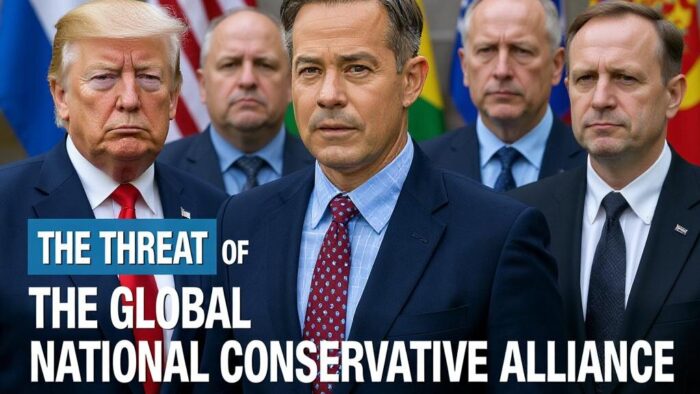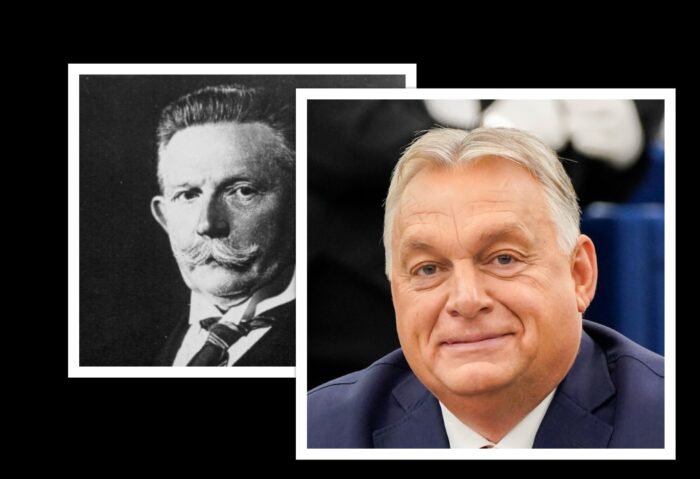The French far right’s relationship with Trump has shifted dramatically as Marine Le Pen’s National Rally distances itself from the controversial US president ahead of France’s 2027 elections. On 16 September 2025, Foreign Policy reported that despite shared ideological ground on immigration and nationalism, Le Pen’s party now views Trump as a political liability among French voters who overwhelmingly disapprove of the American leader. The article begins:
Martin, a 26-year-old teacher in the southern French town of Carpentras, firmly supports the far-right National Rally (RN) party. He voted for Marine Le Pen, the party’s figurehead, in both rounds of the 2022 presidential election as well as the RN candidate in the first round of last year’s legislative elections. When it comes to U.S. President Donald Trump, however, he has more mixed feelings. “I do appreciate this iron will to show he’s the one leading the world and that nobody else is going to tell him what to do or what to think or how the United States should act,” said Martin, who asked not to disclose his last name for professional reasons. “He’s the type of strongman we’d like to see in France, someone who says he’s protecting America first and thinking of America first.” On the other hand, Trump’s actual policies have Martin less enthused—in particular, his tariffs and massive cuts to the public sector.
Key Points
- Four out of five French people have negative views of Trump, including 57 percent of National Rally sympathizers.
- Le Pen once sought an association with Trump but now limits public praise due to his polarizing image.
- National Rally canceled Jordan Bardella’s CPAC appearance after Steve Bannon’s Nazi salute controversy.
- Party prioritizes “de-demonization” strategy to appear moderate rather than align with Trump’s extremism.
Marine Le Pen’s National Rally Links Trump to Global National Conservative Alliance in Europe
France’s National Rally represents a central pillar of the global national conservative alliance through Marine Le Pen’s transformation of the party and its transnational connections. Russian state media has extensively amplified Le Pen’s positions, criticizing Western support for Ukraine and NATO, positioning her as a preferred candidate who promised to leave the Atlantic alliance. The National Rally has cultivated direct support from Donald Trump, who publicly backed Le Pen following her conviction for embezzling EU funds, calling the court ruling a “Witch Hunt” and comparing it to his own legal troubles.
Le Pen’s party has established itself within the broader European nationalist network through the Patriots for Europe alliance, joining Viktor Orbán and other far-right leaders in rejecting EU federalism and promoting a “Europe of nations” based on sovereignty and secure borders. At a major rally in France, Le Pen declared “We are not provinces of an empire” while denouncing Brussels’ policies on migration and European integration. However, the alliance faces internal tensions, as demonstrated when Jordan Bardella canceled his CPAC appearance after Steve Bannon made what he described as a Nazi-like gesture, highlighting the party’s efforts to distance itself from extremist associations.
The National Rally’s role in the global conservative alliance reflects the broader rise of Trump-style populism in Europe, as both Le Pen and her successor Jordan Bardella capitalize on economic and migration crises while centrist leaders lose ground. Despite polling as the likely winner of France’s 2027 presidential election before her conviction, Le Pen’s legal troubles have created uncertainty for both her party and the wider European far-right movement, though Trump’s support exemplifies how the transatlantic nationalist alliance continues to merge U.S. populism with European far-right politics.
External References:
- Marine Le Pen’s Trump-style defiance over her conviction leaves France and its far right in a bind
- The French Far Right’s Awkward Dance Around Trump
- Le Pen in Madrid: “The Power of Europe Lies in the Power of Its Nations”
Disclaimer
The Global Influence Operations Report (GIOR) employs AI throughout the posting process, including generating summaries of news items, the introduction, key points, and often the “context” section. We recommend verifying all information before use. Additionally, images are AI-generated and intended solely for illustrative purposes. While they represent the events or individuals discussed, they should not be interpreted as real-world photography.










